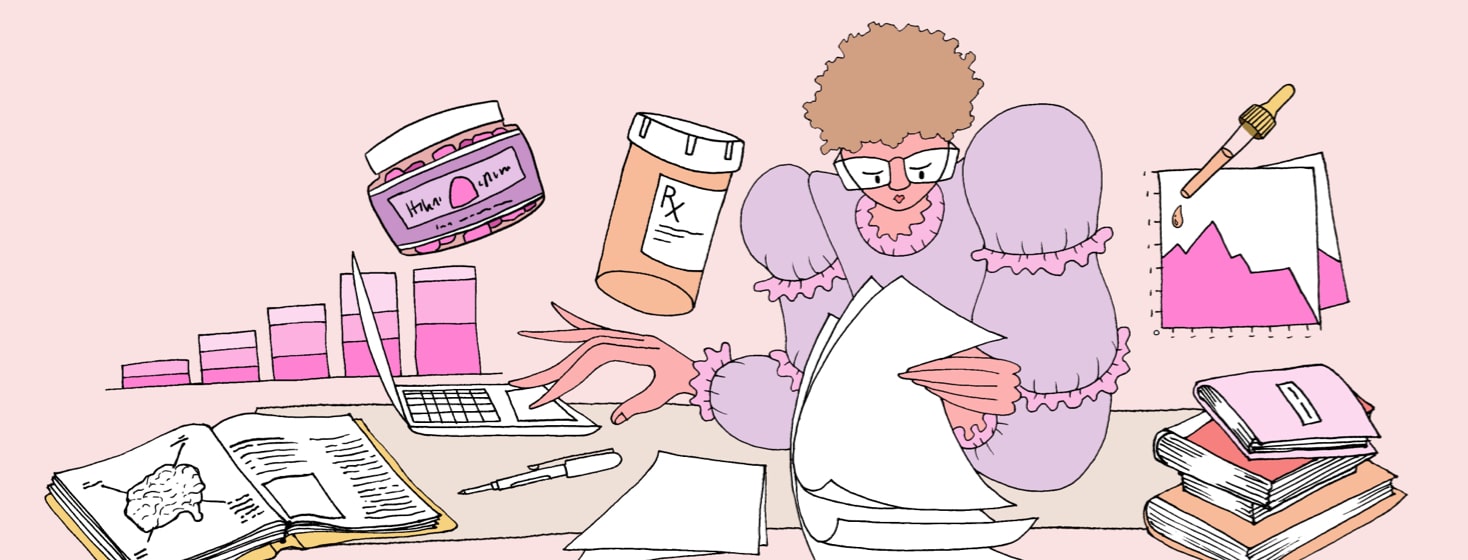“Will Weed Help Me Sleep?” The Research on Cannabis and Insomnia
Before we jump into things it is important to note I am not a prescriber and cannot make recommendations about medication. Please consult your medical care provider before starting any treatment, including cannabis.
As cannabis becomes more widely available, people with insomnia are asking, "Will weed help me sleep?" more frequently. The answer to that question depends on who you ask. It's a question that my patients ask frequently, so I took a deep dive into the research to see what answers I could find.
Understanding the research
By the time the public hears about research, it has usually been simplified to a sentence or 2. "Four out of 5 dentists recommend using toothpaste." That's easy to remember, but it doesn't tell the whole story.
When scientists and providers read the research, we focus on the quality of evidence. Were there enough people in the study to see patterns? Did the researchers use valid tests? Did the treatment do better than a placebo? How carefully did researchers measure symptoms and results?
Unfortunately, the quality of existing research on cannabis and insomnia is fairly low. This is according to 3 recent meta-analyses that summarized the research. One group of researchers explained that it is hard to draw strong conclusions because there is so much variability between the studies in terms of:1,2,5
- How cannabis is ingested (smoking, oil, nasal spray, etc.)
- The dosages used
- Concentration of THC and CBD
- How insomnia is measured
- Who the participants are
- How long treatment lasted
What the data DOES says
Although the existing studies are not of great quality, some findings are worth highlighting.
Overall, the effectiveness of cannabis varied between studies. In one meta analysis, only 37 percent of controlled studies reported a significant improvement in sleep. Cannabis improved sleep sometimes, for some people, under some conditions.5
If we look at individual studies, this gets even more confusing.
One small study found that cannabis actually led to decreased sleep duration. This included less time spent in deeper stages of sleep.3
But in another study, cannabis increased sleep by about 30 minutes per night. Most of that added sleep was light sleep. To put that in context, getting more light sleep helps us feel less tired in the morning. But deeper stages of sleep (including REM and slow wave sleep) are important for physical and mental health.4
In summary, data about sleep duration are downright conflicting.
One important finding is that cannabis was most helpful for insomnia sufferers who also struggled with pain-related disorders. The researchers speculated that better pain management may lead to better sleep.5
Given the wide range of cannabis dosages studied, it is impossible for researchers to recommend a specific dose or concentration of THC and/or CBD. However, about half of study participants reported better sleep with lower doses. In this way, less was more for them.3
Unfortunately, any sleep benefits from cannabis tend to decrease with continued use. After chronic use, people no longer fall asleep faster and there is a decrease in the amount of deep sleep they get. Sleep is also likely to temporarily worsen when you stop using cannabis after a period of regular use.1,2
Despite all of this data, participants often report that they are pleased with the effect that cannabis has on their insomnia. For example, in one small study 79 percent of participants requested to continue treatment with cannabis after the study concluded. This was the case even though most measures of insomnia did not reveal statistically significant differences in sleep.3
Takeaways
Many people subjectively feel that cannabis helps them sleep, even if scientific measurement does not clearly show that. If you choose to use cannabis to help you sleep, keep the following points in mind:
- Study results are inconsistent. Cannabis may help some people, but not others.
- Cannabis may be more helpful for people who struggle with insomnia and pain.
- Cannabis is unlikely to be a good long-term solution for insomnia due to tolerance and withdrawal symptoms.
- Less may be more. A larger dose or concentration does not guarantee better results.
- Always talk to your medical provider before trying a new treatment, including cannabis.
As cannabis becomes more widely accepted, more research is likely to be pursued and funded. Hopefully that research will be of better quality and will give us clearer answers. But until then, the answer to the question, "Will weed help me sleep better?" remains an unsatisfying "maybe."

Join the conversation